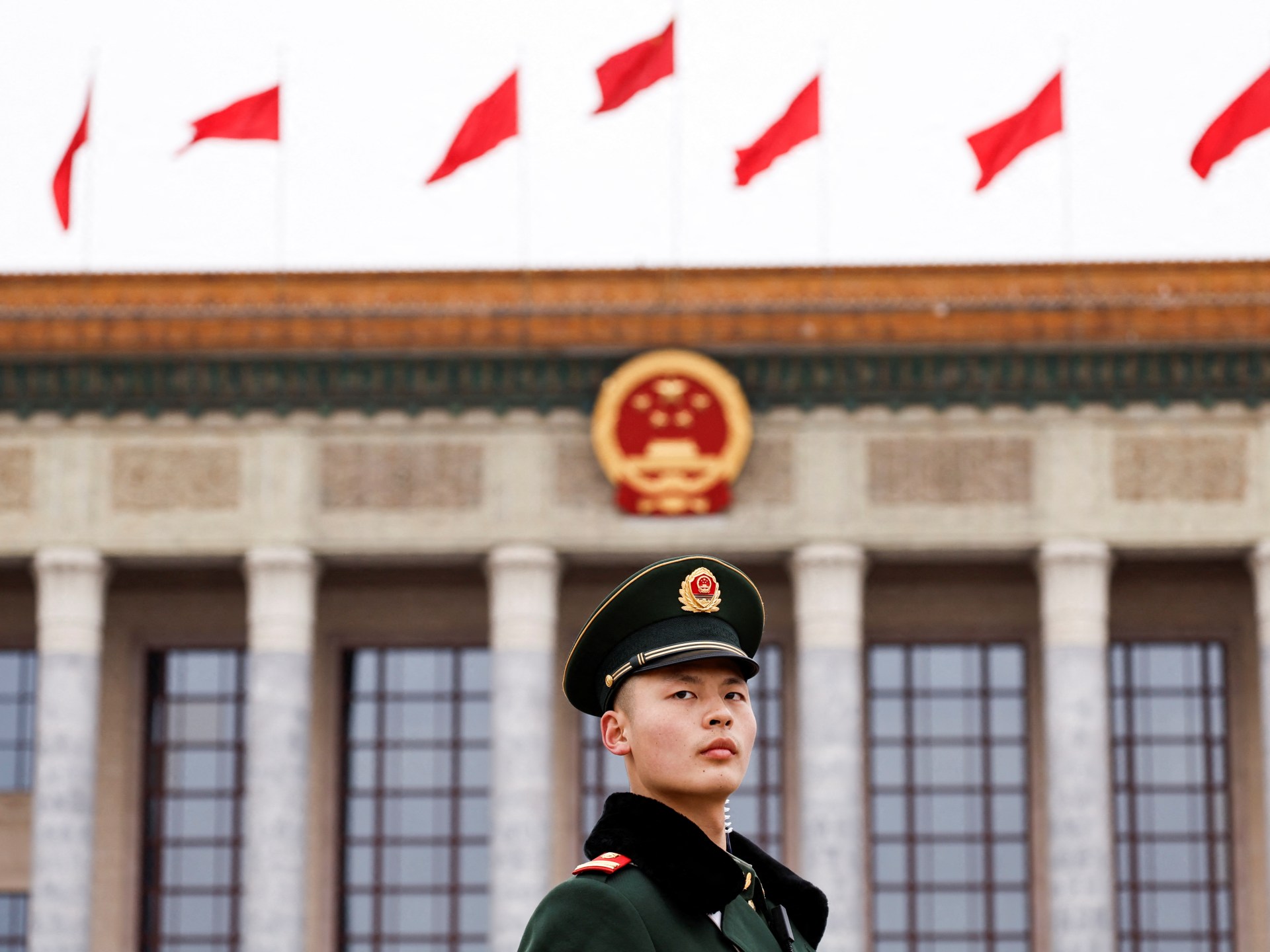China’s revised state secrets law has come into force. Here’s what to know

EXPLAINER
Taiwan warn its citizens against travelling to China amid fears new law could be used to punish regular business activities.
A revised state secrets law has come into force in China, prompting Taiwan to warn its citizens against travelling to China and rattling foreign companies amid fears the legislation could be used to punish regular business activities.
The changes to the Law on the Guarding of State Secrets, enacted on Wednesday, come as President Xi Jinping’s government steps up the focus on national security, including by updating China’s anti-espionage law and increasing the scrutiny of firms with foreign ties.
This has included police raids on consultancies and arrests of foreign executives on espionage charges.
Here’s what you need to know about the latest law.
What’s new in the revised state secrets law?
The Law on the Guarding of State Secrets, which was first passed in 1988, covers a wide range of sectors including politics, economics, national defence and diplomacy.
Changes brought to the law by China’s top legislative body in February broadened its scope to include “work secrets” – information that does not amount to state secrets but could cause “adverse effects if leaked”.
The revisions also require internet companies to crack down on and cooperate with investigations into suspected leaks. In the event of a suspected state security leak, Article 34 of the revised act states that “network operators” shall “immediately stop its transmission, save relevant records, and report [the case] to the secrets administration departments or public security organs and state security organs”. The operators are also obliged to delete the information if requested.
The amended law also requires government agencies to dedicate resources to protecting state secrets and subjects government employees handling state secrets to a “classification separation management period”, in which they are banned from finding new employment and or leaving China for a certain period.
The state-owned Xinhua news agency quoted an official with China’s National Administration of State Secrets Protection as saying that the revisions were necessary to respond to “new problems and challenges in the new era”.
Why are foreign firms worried?
The enactment of the revised state secrets law comes a year after China’s top legislative body passed wide-ranging changes to its anti-espionage legislation, including a ban on the transfer of any information related to national security.
It also comes as the foreign business community in China remains on edge following the arrest of a senior Japanese employee of Astellas Pharma on charges of espionage as well as a series of police raids last year on the offices of due diligence firm, Mintz Group, and that of two consultancies, Bain & Company, and Capvision.
Against this background, WilmerHale, a United States-based law firm, said the changes to the state secrets law created uncertainty and compliance challenges for businesses operating in China.
WilmerHale noted in particular the provision on “work secrets”. It said what constitutes “work secrets” under the law was not clear and vulnerable to arbitrary, inconsistent or expansive interpretation.
“Work secrets could presumably include information obtained through conventional research and due diligence … The inclusion of this term in the State Secrets Law … may lead to self-censorship and impair ordinary business operations,” it said.
But Baker McKenzie and FenXun, a US-Chinese partnership, said they were of the view that the law’s “impact on the ordinary course of business operation for most multinational companies should not be substantial”. Still, it advised companies “to improve awareness of state secrets protection and adopt operational measures to strengthen data management”.
What has Taiwan said?
The law’s enactment has worried Taiwan, the self-ruled island that Beijing claims as its own, with the territory’s Mainland Affairs Council issuing a statement on Tuesday warning that the expanded law meant the risk involved in visiting China was likely to “increase significantly”.
The council said the revised law was “highly vague and may cause people to break the law at any time” and criticised Beijing for “continuously using legislations” to strictly monitor overseas visitors to China.
“We would like to once again remind the public to refrain from going to China for the time being unless necessary,” it added.
Related
Qatar Business Leaders Optimistic About Long-Term Growth – HRO Today
Research from KPMG finds CEOs are prioritising resilience, technological innovation, and adaptability in 2025. By Maggie Mancini As organisations respond to glo
Indian Startups Showcase Innovation and Global Expansion at Web Summit…
Indian startups are making waves globally, and their latest venture at Web Summit Qatar 20
Qatar’s tax authority launches 100 percent financial penalty exemption initiative…
To qualify, companies must register on the Dhareeba Tax Portal and ensure that all taxpayer data is updatedQatar’s General Tax Authority recently announced th
India-Qatar Joint Business Forum held to Strengthen Bilateral Economic Ties…
NEW DELHI : On the sidelines of the visit of H.H. Sheikh Tamim bin Hamad bin Khalifa Al Thani, Amir of Qatar to In












